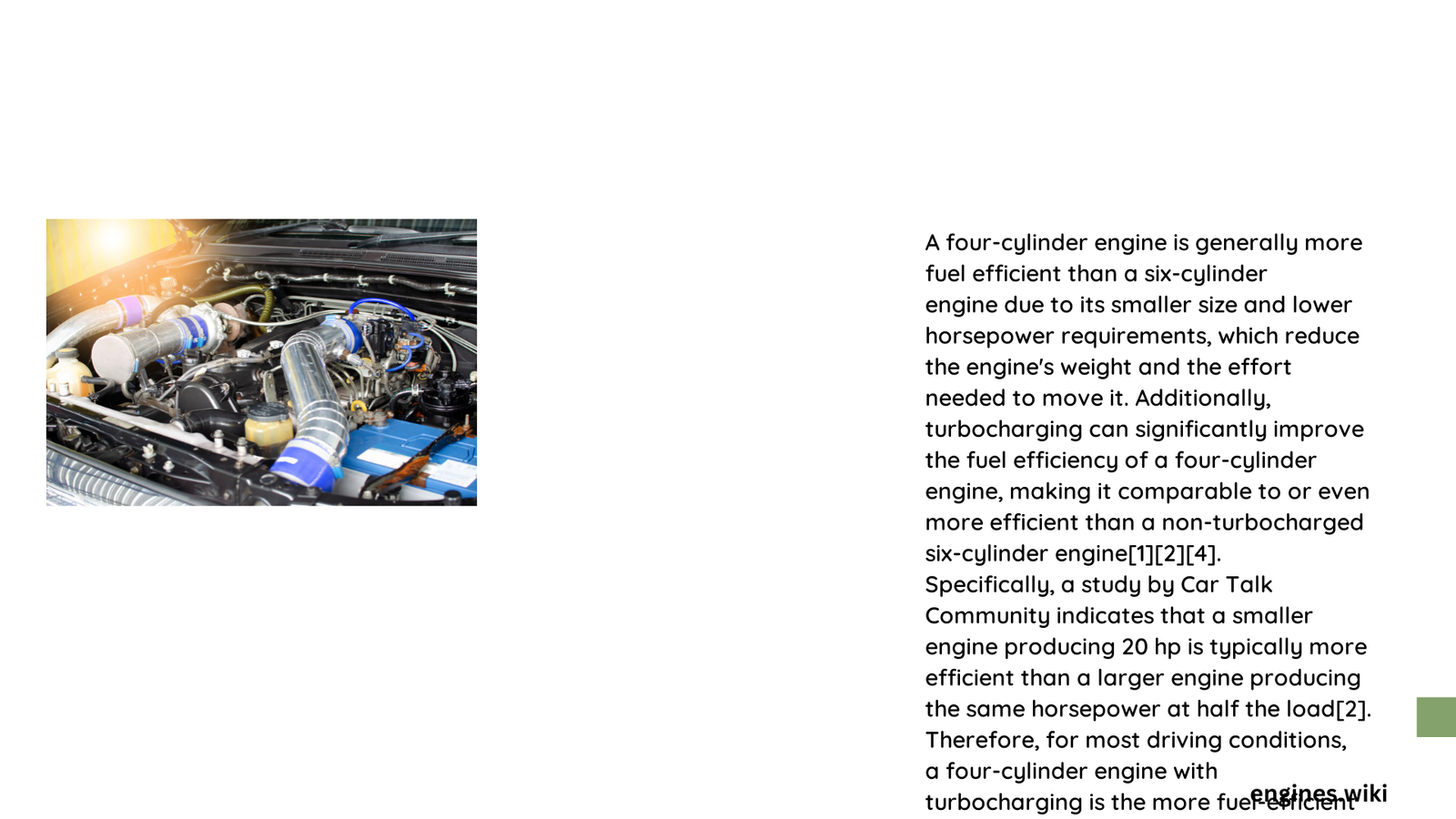In the quest for optimal fuel efficiency, modern automotive technologies offer diverse solutions across hybrid, gasoline, and diesel engines. Drivers seeking maximum miles per gallon face a complex landscape of technological innovations, where hybrid powertrains like the Hyundai Ioniq and Toyota Prius lead with impressive 57-59 MPG ratings, significantly outperforming traditional gasoline engines that typically achieve 36-39 MPG combined.
What Makes an Engine Fuel Efficient?
How Do Hybrid Engines Achieve Superior Fuel Economy?
Hybrid engines leverage a sophisticated combination of electric and gasoline power systems to maximize fuel efficiency. Key strategies include:
- Regenerative Braking: Converts kinetic energy into electrical energy
- Electric Motor Assistance: Reduces gasoline engine load
- Idle Stop Technology: Automatically shuts down engine during stops
Comparative Fuel Efficiency Metrics
| Engine Type | Average MPG | Key Advantages |
|---|---|---|
| Hybrid | 57-59 | Lowest emissions, highest efficiency |
| Gasoline | 36-39 | Lower initial cost |
| Diesel | 40-45 | High torque, long-distance efficiency |
What Performance Factors Impact Fuel Efficiency?
Several critical factors determine an engine’s fuel efficiency:
- Engine Size: Smaller engines generally consume less fuel
- Technology Integration: Advanced systems like turbocharging
- Driving Conditions: Urban vs. highway driving patterns
- Vehicle Weight: Lighter vehicles require less energy
Are Hybrid Engines Always the Most Fuel Efficient?
While hybrid engines demonstrate superior fuel economy, they aren’t universally perfect. Considerations include:
- Higher Initial Purchase Cost
- Complex Maintenance Requirements
- Battery Replacement Expenses
- Performance Variations by Model
How Do Different Engine Types Compare?
Hybrid Engine Performance
- 2022 Hyundai Ioniq Blue: 59 MPG, 139 horsepower
- 2023 Toyota Prius: 57 MPG, 196 horsepower
Traditional Gasoline Engine Performance
- Mitsubishi Mirage: 39 MPG, 78 horsepower
- Honda Civic: 36 MPG, ~150 horsepower
What Economic Factors Influence Engine Efficiency?
Economic considerations extend beyond raw fuel consumption:
- Fuel Price Fluctuations
- Maintenance Costs
- Long-Term Ownership Expenses
- Potential Tax Incentives
Conclusion: Selecting the Most Fuel-Efficient Engine

Choosing the most fuel-efficient engine depends on individual driving needs, budget, and environmental priorities. Hybrid engines currently lead in overall efficiency, offering substantial fuel savings and reduced emissions.
Recommendations
- Urban Drivers: Prioritize hybrid technologies
- Long-Distance Travelers: Consider diesel or advanced gasoline engines
- Budget-Conscious Consumers: Evaluate total ownership costs
Future Outlook
Emerging technologies like improved electric powertrains and hydrogen fuel cells promise even greater efficiency in the coming years.
Pro Tips for Maximizing Fuel Efficiency
- Regular Maintenance
- Efficient Driving Techniques
- Tire Pressure Management
- Aerodynamic Considerations
Reference:
– HotCars: 10 Most Fuel-Efficient Engines
– Car and Driver: Fuel-Efficient Gas Cars
– Automotive Efficiency Research
